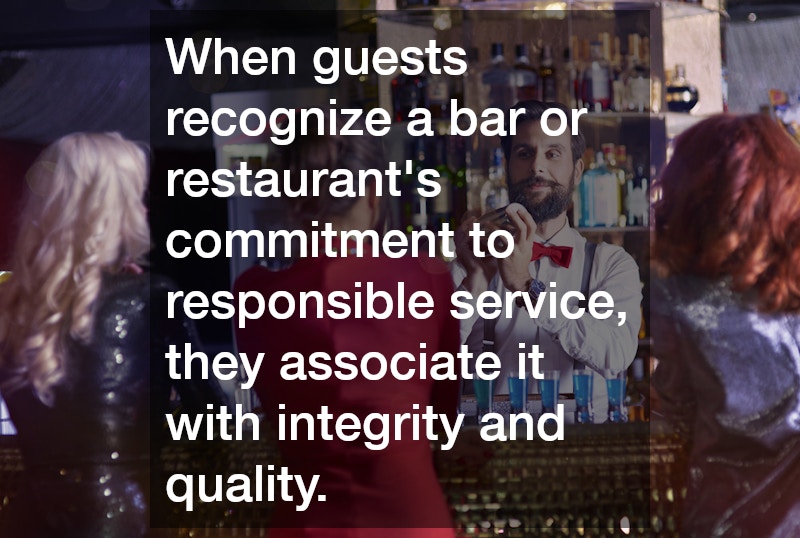The world of food and drink is more than recipes and presentation—it’s an experience that connects people through flavor, creativity, and atmosphere. Behind every expertly mixed cocktail or perfectly paired beverage is a professional who understands balance, service, and responsibility. In today’s hospitality industry, mastering this craft takes more than natural talent. It requires the right foundation, formal education, and a commitment to excellence.
Many people see bartending as a job, but for those who want to excel, it’s a skill-driven career that merges artistry with professionalism. Understanding what goes into crafting beverages and maintaining safety and compliance are essential components of success.
That’s where proper credentials and training come into play. By investing in the knowledge that supports both quality and safety, bartenders, restaurant owners, and hospitality staff can elevate their service and reputation.
Becoming a true expert in the food and drink industry is not just about knowing ingredients—it’s about understanding people, timing, and responsibility. With the right preparation and commitment to learning, anyone in the field can transform their work from routine service into an art form that customers remember and appreciate.
Elevating Professional Standards in Hospitality
In any hospitality environment, professionalism sets great establishments apart. Patrons expect not just good drinks but exceptional service from staff who understand flavor profiles, responsible serving practices, and customer engagement. A bartender who takes time to train formally demonstrates dedication to their craft and their customers.
This formal approach establishes consistency across service levels. Trained professionals can manage complex beverage menus, suggest pairings that complement the food, and maintain control during busy hours without sacrificing quality. These skills are crucial for keeping customers satisfied and operations running smoothly.
Proper training also promotes a sense of accountability among team members. When everyone understands the importance of proper serving techniques and compliance with local laws, it creates a safer and more enjoyable experience for everyone involved. Patrons feel confident knowing they are in capable hands, and businesses benefit from reduced risks and improved public perception.
Building Confidence Behind the Bar
Confidence is one of the most important traits of a great bartender. From managing multiple orders to handling customer requests with ease, confidence allows professionals to perform efficiently under pressure. Formal education in mixology, responsible service, and alcohol management provides the knowledge that builds that confidence.
A bartender who has studied the principles of responsible service knows how to make quick decisions that keep both guests and the establishment protected. They can spot when someone has had enough, handle difficult situations tactfully, and prevent potential issues before they arise. Confidence built on education creates trust among patrons and peers alike.
This self-assurance extends beyond customer interactions. Confident bartenders often inspire their teams, mentor new employees, and help maintain positive workplace culture. They become role models in professionalism, demonstrating how skill and composure can create exceptional guest experiences even in high-pressure environments.
Encouraging Responsible Service and Safety
Safety and responsibility are at the core of hospitality excellence. Understanding how to serve alcohol responsibly is essential for protecting both customers and businesses. When staff are educated in these principles, they are equipped to manage consumption responsibly and recognize signs of overindulgence.
Responsible service training also helps prevent legal issues that could arise from serving underage or intoxicated individuals. Establishments with trained and certified staff often experience fewer compliance violations and enjoy stronger community trust. This proactive approach demonstrates a business’s commitment to the well-being of its patrons.
Beyond legal obligations, responsible service fosters a culture of care and respect. Guests appreciate when staff prioritize their safety without compromising enjoyment. This balance between hospitality and accountability reflects the professionalism that keeps customers returning and recommending the establishment to others.
Strengthening Business Reputation
In a competitive industry, reputation can make or break success. Establishments known for professionalism, safety, and exceptional service attract loyal clientele and positive reviews. Licensed and trained bartenders contribute directly to this image by embodying reliability and skill.
When guests recognize a bar or restaurant’s commitment to responsible service, they associate it with integrity and quality. Over time, this builds customer loyalty and word-of-mouth promotion—two of the most valuable assets in hospitality.
Additionally, businesses that employ certified staff are often better prepared for audits, inspections, or legal reviews. They operate with greater transparency and compliance, protecting their reputation and ensuring sustainable growth. Investing in trained and licensed personnel isn’t just about meeting requirements—it’s about setting the foundation for long-term success.
Mastering the art of food and drink takes more than creativity and charm; it requires a deep understanding of responsibility, technique, and professionalism. Formal education and credentials, such as a bartending license, provide the framework for excellence in this industry.
From building confidence and improving safety to enhancing collaboration between kitchen and bar, proper training transforms good service into unforgettable experiences. It empowers professionals to make informed decisions, deliver consistent quality, and uphold the reputation of the establishments they represent.
For bar and restaurant owners, hiring educated and licensed staff demonstrates a commitment to excellence and customer well-being. For bartenders, it’s a pathway to career growth and credibility.
Ultimately, success in the food and drink industry depends on knowledge, consistency, and respect for the craft. With the right foundation and dedication to continuous improvement, both businesses and professionals can thrive—turning every pour, every plate, and every interaction into a reflection of true expertise.


